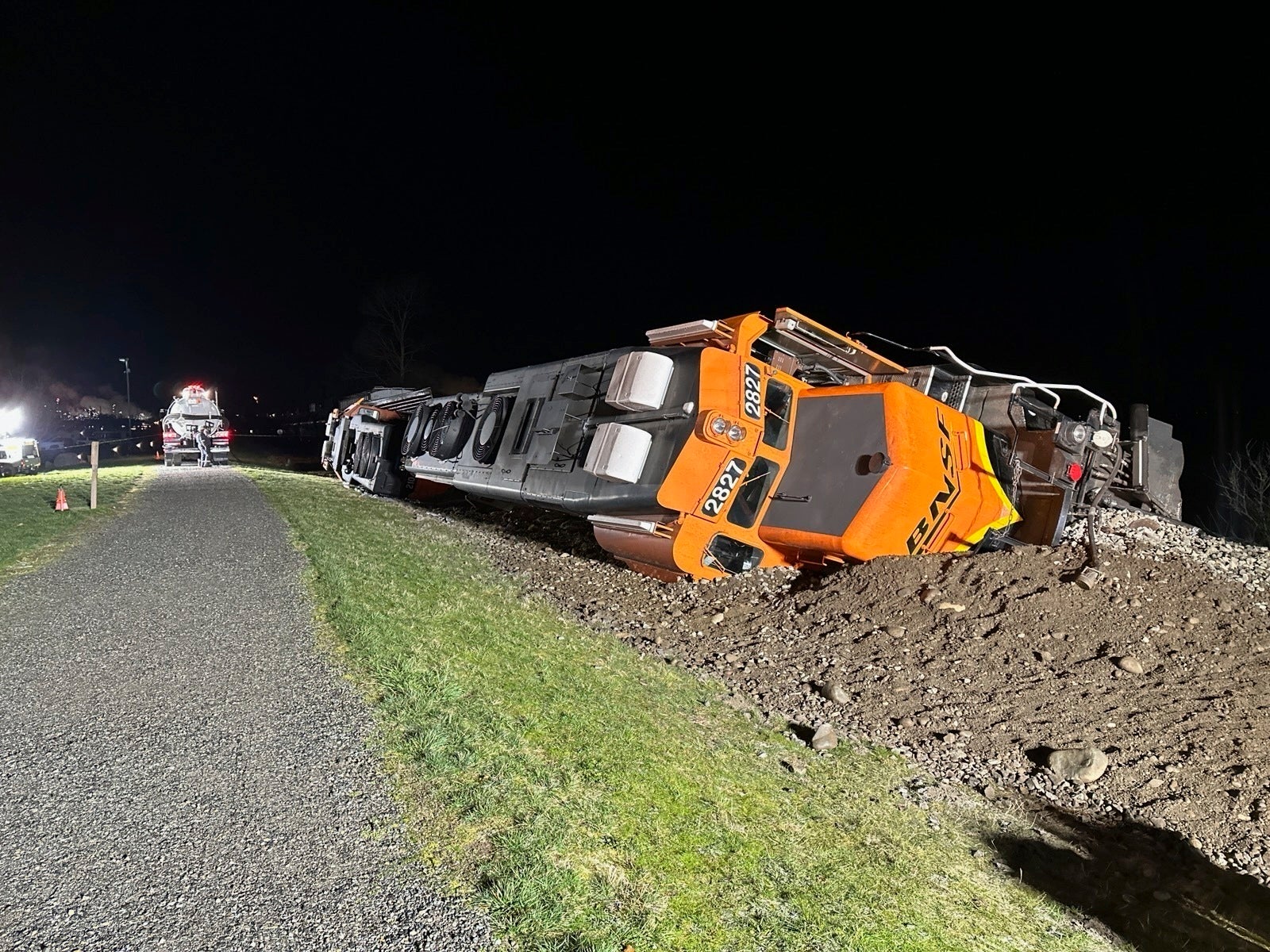Judge orders railway to pay Washington tribe nearly $400 million for trespassing with oil trains
A federal judge has ruled that BNSF Railway must pay nearly $400 million to a Native American tribe in Washington state

Your support helps us to tell the story
From reproductive rights to climate change to Big Tech, The Independent is on the ground when the story is developing. Whether it's investigating the financials of Elon Musk's pro-Trump PAC or producing our latest documentary, 'The A Word', which shines a light on the American women fighting for reproductive rights, we know how important it is to parse out the facts from the messaging.
At such a critical moment in US history, we need reporters on the ground. Your donation allows us to keep sending journalists to speak to both sides of the story.
The Independent is trusted by Americans across the entire political spectrum. And unlike many other quality news outlets, we choose not to lock Americans out of our reporting and analysis with paywalls. We believe quality journalism should be available to everyone, paid for by those who can afford it.
Your support makes all the difference.BNSF Railway must pay nearly $400 million to a Native American tribe in Washington state, a federal judge ordered Monday after finding that the company intentionally trespassed when it repeatedly ran 100-car trains carrying crude oil across the tribe's reservation.
U.S. District Judge Robert Lasnik initially ruled last year that the the railway deliberately violated the terms of a 1991 easement with the Swinomish Tribe north of Seattle that allows trains to carry no more than 25 cars per day. The judge held a trial earlier this month to determine how much in profits BNSF made through trespassing and how much it should be required to disgorge.
The tribe sued in 2015 after BNSF dramatically increased, without the tribe’s consent, the number of cars it was running across the reservation so that it could ship crude oil from the Bakken Formation in and around North Dakota to a nearby facility. The route crosses sensitive marine ecosystems along the coast, over water that connects with the Salish Sea, where the tribe has treaty-protected rights to fish.
Bakken oil is easier to refine into the fuels sold at the gas pump and ignites more easily. After train cars carrying Bakken crude oil exploded in Alabama, North Dakota and Quebec, a federal agency warned in 2014 that the oil has a higher degree of volatility than other crudes in the U.S.